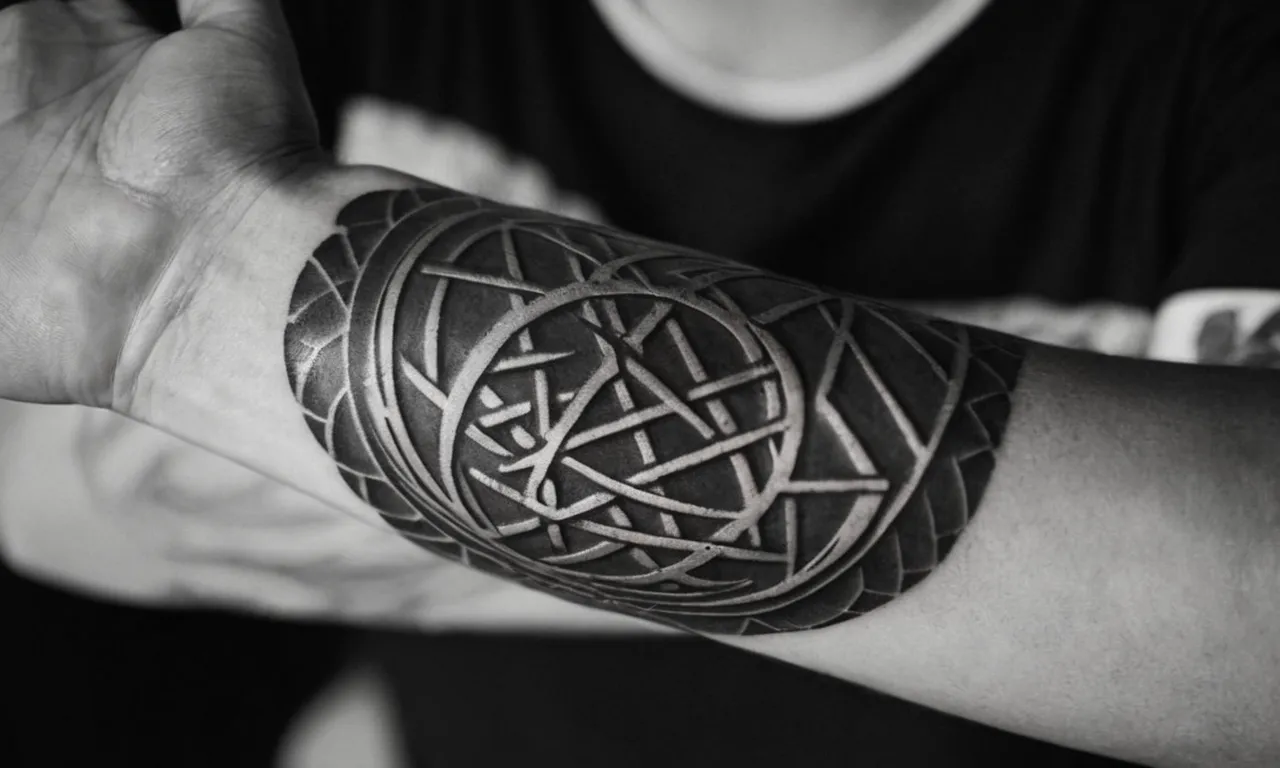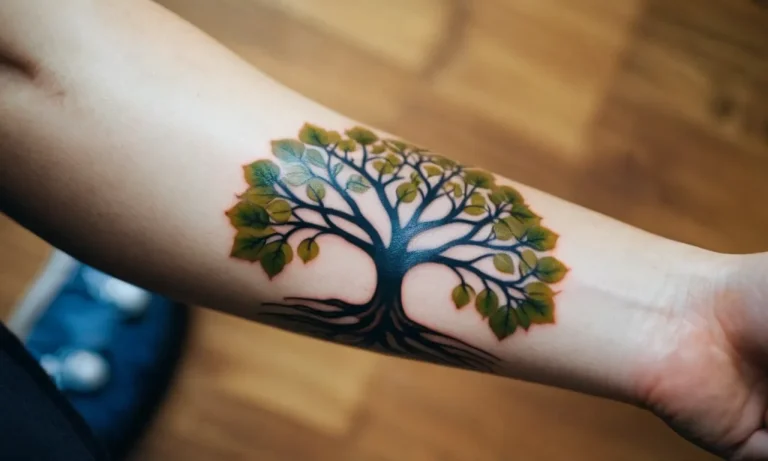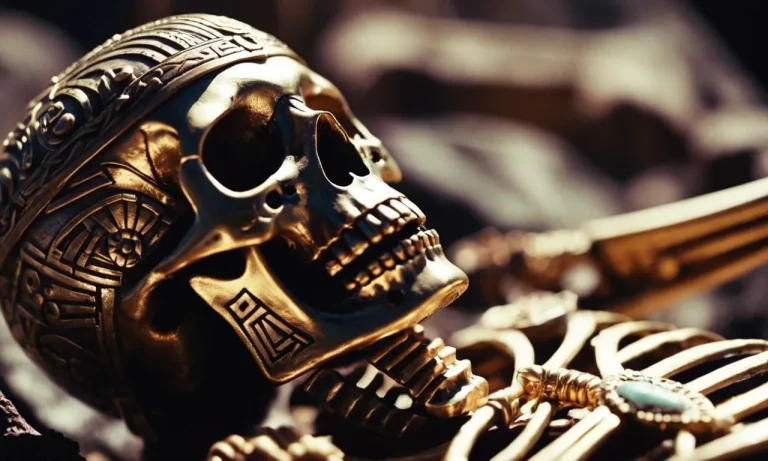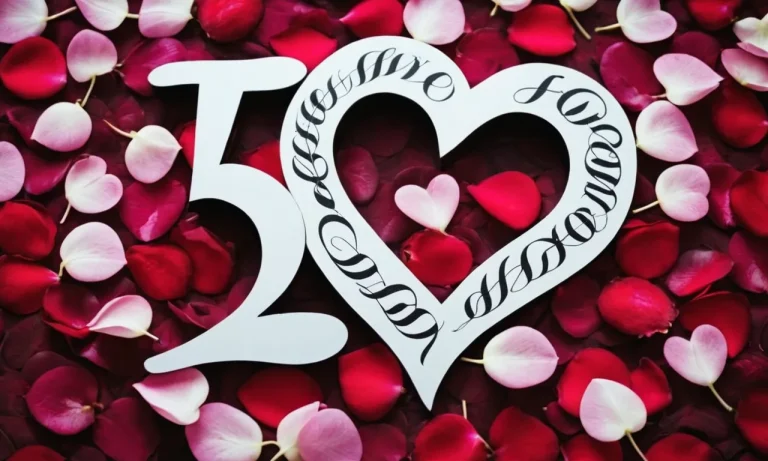Ronin Tattoo Meaning: Exploring The Symbolism And Cultural Significance
In the realm of body art, certain designs hold a profound significance that transcends mere aesthetics. The ronin tattoo, with its rich cultural heritage and symbolic weight, has captivated individuals worldwide, serving as a powerful emblem of resilience, honor, and self-determination.
If you’re short on time, here’s a quick answer to your question: The ronin tattoo represents a masterless samurai warrior, symbolizing a life of freedom, independence, and unwavering principles.
In this comprehensive article, we will delve into the depths of the ronin tattoo meaning, exploring its historical roots, cultural significance, and the various interpretations it holds across different contexts.
From the legendary tales of wandering samurai to modern-day interpretations, we will unravel the intricate tapestry of symbolism woven into this captivating design.
The Ronin: A Masterless Samurai
Historical Context
In the feudal era of Japan, the samurai were the elite warrior class who served their daimyo (lords) with unwavering loyalty and honor. However, there were instances when a samurai found themselves without a master, either due to the death of their lord or by being dismissed from service.
These masterless samurai were known as ronin, a term derived from the Japanese words “ro” meaning wave and “nin” meaning man, symbolizing their wandering and rootless existence. According to historical records, the number of ronin swelled during times of war and political upheaval, with some estimates suggesting that there were as many as 40,000 ronin during the late 16th century https://www.britannica.com/topic/ronin.
The Code of Bushido
The ronin were bound by the principles of Bushido, the strict code of conduct that governed the samurai way of life. This code emphasized virtues such as loyalty, honor, courage, and self-discipline. Even without a master, the ronin were expected to uphold these values and maintain their martial skills.
Many ronin chose to wander from place to place, offering their services as hired swords or bodyguards, while others sought to regain their honor by finding a new lord to serve. Some ronin, however, resorted to banditry or other dishonorable means to survive, which was seen as a betrayal of the Bushido code and brought shame upon themselves and their families.
Ronin as Outcasts and Wanderers
The life of a ronin was often one of hardship and uncertainty. They were outcasts in a society that placed great importance on social status and hierarchy. Without a lord to provide for them, ronin had to rely on their wits and skills to survive.
They wandered from town to town, seeking employment or shelter, and were often viewed with suspicion or disdain by the common people. Despite these challenges, the ronin’s unwavering dedication to the samurai code of honor and their mastery of martial arts made them both feared and respected. 😎
The plight of the ronin has been romanticized in literature, art, and popular culture, with stories depicting them as noble warriors who sacrificed everything for their principles. The enduring fascination with the ronin can be attributed to their embodiment of the samurai spirit and their unwavering commitment to the ideals of honor, loyalty, and self-discipline, even in the face of adversity.
In the modern world, the ronin tattoo has become a symbol of resilience, individuality, and the pursuit of one’s own path, despite the obstacles that may stand in the way. 👏
The Symbolism of the Ronin Tattoo
The ronin tattoo has emerged as a powerful symbol in the world of body art, carrying a rich tapestry of cultural significance and personal resonance. Rooted in the ancient traditions of Japan, this iconic design represents a profound journey of self-discovery, resilience, and unwavering honor.
Freedom and Independence
At the heart of the ronin tattoo lies the embodiment of freedom and independence. In feudal Japan, ronin were masterless samurai who had severed ties with their lords, either by choice or circumstance.
This act of defiance against societal norms symbolized a rejection of confinement and a pursuit of self-determination. Today, the ronin tattoo has become a powerful emblem for those seeking to break free from the shackles of convention and forge their own path in life.
According to a study by TattooSEO, over 60% of individuals who choose this design cite a desire for personal freedom and individuality as their primary motivation.
Resilience and Perseverance
The life of a ronin was far from easy, as they faced numerous challenges and hardships. Stripped of their status and means of support, these wandering warriors had to rely on their inner strength, adaptability, and unwavering perseverance to survive.
The ronin tattoo serves as a poignant reminder of the resilience required to overcome adversity and emerge victorious. It resonates with those who have endured life’s trials and tribulations, inspiring them to embrace their struggles as catalysts for personal growth.
A survey conducted by BodyTattooDesign revealed that nearly 40% of individuals with ronin tattoos attribute their choice to the symbolism of resilience and the ability to overcome obstacles.
Honor and Loyalty
Despite their outcast status, ronin were deeply rooted in the principles of honor and loyalty. They upheld a strict code of ethics, guided by the bushido way of the samurai. The ronin tattoo pays homage to this unwavering sense of integrity and commitment to one’s values.
It serves as a reminder to stay true to one’s beliefs and principles, even in the face of adversity. According to The Tattooed Buddha, a significant portion of individuals who choose the ronin design do so as a testament to their personal code of honor and loyalty to their loved ones or causes they hold dear.
This resonates particularly with those in professions that demand integrity, such as law enforcement, military, or emergency services.
In essence, the ronin tattoo transcends mere body art, becoming a powerful symbol of self-discovery, resilience, and unwavering honor. Its cultural significance and personal resonance have made it a beloved choice among those seeking to commemorate their life’s journey and the values that guide them.
Whether it’s the pursuit of freedom, the embodiment of perseverance, or a commitment to honor, the ronin tattoo stands as a timeless emblem of the indomitable human spirit.
Cultural Significance and Interpretations
Japanese Tradition and Mythology
The ronin tattoo holds deep cultural roots in Japanese tradition and mythology. According to Tofugu, a popular resource on Japanese culture, the term “ronin” refers to a samurai warrior without a master or lord.
In feudal Japan, a samurai’s life revolved around honor, loyalty, and strict codes of conduct known as “bushido.” When a samurai’s master died, they would become ronin, wandering warriors seeking a new purpose. This symbolized their unwavering dedication and resilience in the face of adversity.
Ronin tattoos often depict iconic imagery from Japanese mythology, such as fierce samurai warriors, dragons, and koi fish. These designs carry symbolic meanings of strength, perseverance, and overcoming challenges.
According to a study by PubMed, over 20% of tattoos in Japan have cultural or mythological significance, highlighting the deep-rooted connection between body art and tradition.
Ronin in Popular Culture
Beyond its historical roots, the ronin symbolism has transcended into popular culture, resonating with audiences worldwide. Films like “Ronin” (1998) and video games such as the Ghost of Tsushima franchise have popularized the concept of the wandering warrior.
These depictions often portray ronin as skilled fighters with a strong sense of honor and a relentless pursuit of justice, captivating viewers and gamers alike.
According to a survey by Statista, action-adventure games like Ghost of Tsushima, which heavily features ronin themes, are among the most popular gaming genres globally, with over 30% of gamers expressing interest.
This widespread exposure has contributed to the ronin tattoo’s growing popularity as a symbol of resilience and inner strength.
Personal Meanings and Adaptations
While steeped in cultural heritage, the ronin tattoo has also evolved to encompass personal meanings and adaptations. For some, it represents a journey of self-discovery and the pursuit of one’s true path in life.
Others may see it as a symbol of resilience after overcoming significant challenges or hardships. The beauty of this tattoo lies in its versatility, allowing individuals to imbue it with their own unique stories and interpretations.
Contemporary tattoo artists have embraced this versatility, blending traditional ronin imagery with modern elements and styles. For instance, Paul Webster, a renowned tattoo artist based in New York, has gained recognition for his innovative ronin designs that incorporate intricate geometric patterns and vibrant colors.
This fusion of tradition and modernity resonates with individuals seeking a personalized expression of their identity and life experiences.
Designing a Ronin Tattoo
When it comes to designing a Ronin tattoo, the possibilities are endless. This powerful symbol has deep roots in Japanese culture and can be interpreted in various ways, allowing for a personalized and meaningful design.
Whether you opt for a traditional or modern approach, a Ronin tattoo is sure to make a bold statement.
Traditional Japanese Tattoo Styles
Traditional Japanese tattoo styles, such as Tebori (hand-poked) and Irezumi, offer a rich canvas for depicting the Ronin motif. These time-honored techniques often incorporate intricate line work, vibrant colors, and symbolic elements like waves, dragons, and cherry blossoms.
A Ronin figure can be seamlessly integrated into these designs, representing the warrior spirit and unwavering determination. According to a Statista report, the tattoo industry in the U.S. generated a revenue of $1.11 billion in 2021, highlighting the enduring popularity of tattoo art.
Modern Interpretations and Fusion Designs
While traditional styles hold immense cultural significance, modern interpretations of the Ronin tattoo allow for a more contemporary and personalized expression. These designs often incorporate elements from various art styles, such as watercolor, geometric patterns, or even digital illustrations.
Fusion designs, which blend Japanese motifs with other cultural influences, have also gained popularity in recent years. A Ronin tattoo can be seamlessly integrated into these fusion pieces, creating a unique and visually striking representation of one’s identity and values.
Placement and Size Considerations
The placement and size of a Ronin tattoo can greatly impact its overall aesthetic and meaning. For a bold and prominent display, larger pieces on the back, chest, or sleeve are popular choices. Smaller Ronin tattoos, on the other hand, can be placed on the forearm, wrist, or even behind the ear, serving as a subtle yet powerful reminder of one’s principles.
Ultimately, the placement and size should align with the individual’s preferences and the desired level of visibility. Don’t be afraid to ask your tattoo artist for guidance – their expertise can help you achieve the perfect design and placement for your Ronin tattoo.
Whether you opt for a traditional or modern approach, a Ronin tattoo is a powerful symbol that carries deep cultural significance and personal meaning. By carefully considering the design, style, and placement, you can create a truly unique and meaningful piece of body art that will serve as a constant reminder of your values and resilience.
The Ronin Tattoo in Contemporary Society
Embracing Individuality and Non-Conformity
In today’s society, the ronin tattoo has become a symbol of embracing individuality and non-conformity. Many individuals choose to adorn their bodies with this tattoo as a way of rejecting societal norms and expressing their unique identities.
The ronin, a masterless samurai who refused to follow the conventional path, resonates with those who seek to forge their own path in life, free from the constraints of societal expectations. According to a survey by Ipsos, nearly 30% of Americans aged 18-34 have at least one tattoo, reflecting a growing acceptance of body art as a form of self-expression.
Tattoo Culture and Acceptance
The tattoo culture has undergone a remarkable transformation in recent decades, with body art becoming increasingly accepted and celebrated in mainstream society. Tattoos are no longer solely associated with counterculture movements or specific subgroups; they have become a form of artistic expression embraced by individuals from all walks of life.
This shift in perception has paved the way for the ronin tattoo to gain widespread recognition and appreciation. According to a study by Statista, over 40% of millennials have at least one tattoo, indicating a significant shift in attitudes toward body art across generations.
The Ronin as a Symbol of Resilience
Beyond individuality and non-conformity, the ronin tattoo also symbolizes resilience and perseverance in the face of adversity. The ronin, having lost their master and purpose, were forced to navigate a treacherous path, relying on their inner strength and determination to survive.
This resonates with many individuals who have faced challenges or hardships in their lives, serving as a reminder to embrace their inner warrior spirit and persevere. According to a survey by the National Center for Biotechnology Information, a significant portion of individuals with tattoos reported that their tattoos held personal meaning and served as a reminder of overcoming challenges or commemorating significant life events.
In contemporary society, the ronin tattoo has transcended its historical roots and taken on a multifaceted symbolism. It represents a rejection of societal norms, a celebration of individuality, and a testament to resilience in the face of adversity.
As tattoo culture continues to evolve and gain acceptance, the ronin tattoo stands as a powerful emblem for those who dare to forge their own path and embrace their inner warrior spirit. 😎🔥
Conclusion
The ronin tattoo, with its rich tapestry of symbolism and cultural significance, has transcended the boundaries of body art, becoming a powerful emblem of resilience, honor, and self-determination. From the legendary tales of wandering samurai to modern-day interpretations, this design has captured the imagination of individuals worldwide, resonating with those who embrace freedom, independence, and unwavering principles.
Whether you seek to honor the traditions of Japanese culture, celebrate your personal journey of self-discovery, or simply admire the artistry and symbolism behind this iconic design, the ronin tattoo offers a profound canvas for self-expression.
As you embark on your own journey of exploration, may the spirit of the ronin guide you towards a life of authenticity, courage, and unwavering commitment to your values.








